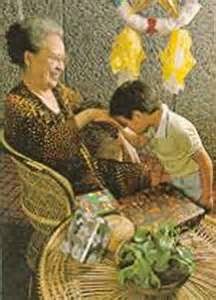Right or privilege
Is owning a firearm a right or a privilege? This is the question raised by a Filipimo congressman in a public hearing for the purpose of introducing an amendment to the Firearms law under Republic Act 10591. Some stakeholders answered yes, its a right. Some answered that it is a privilege.
However, none of them was able to give a satisfactory explanation for their stand. In the Philippines firearm ownership is considered to be a privilege. Hence, stringent requirements were imposed to acquire a license to possess a firearm. Along with the requirements were exorbitant fees that exacted a burden akin to paying an annual real property tax. The process exalted the concerned government agencies into profit centers rather than cost centers.The issue lies on whether it is indeed a privilege or a right. Because, if it is a right, a firearm need not be licensed.
Let us try to delve on the issue with objectivity and impartiality. The substance of owning a firearm primarily rest on the concept of self-defense. Is self-defense a right or a privilege? What is the premise that gave rise to the concept that is self-defense? Is the premise a right or a privilege?
"The right to armed self-preservation is derived from Graeco-Roman natural rights theory, clearly enunciated by the Roman statesman Cicero (BCE 106–43) and other stoic philosophers, influenced by Aristotle. Miguel Faria, author of the book America, Guns, and Freedom (2019), writing in Surgical Neurology International explained that individuals have a right to protect their persons via a natural right to self-defense; that people have not only a right to self-defense but also a moral duty to defend their families and neighbors; that the right to armed self-defense extends collectively to the community to curb or prevent tyrannical government.[5]"
"The right of free men to bear arms for self-defense becomes a duty to protect those under their household and care. Most religions, especially in the Judeo-Christian heritage agree on the right to self-defense and home protection with arms. The Catholic catechism derived from inception based on the theological work of Thomas Aquinas. It reads: "Legitimate defense can be not only a right but also a grave duty for one who is responsible for the lives of others. The defense of the common good requires that an unjust aggressor be rendered unable to cause harm." Furthermore, as "it happens that the need to render the aggressor incapable of causing harm sometimes involves taking his life."[6]"
"The English philosopher John Locke (1632–1704) posited that natural rights were self-evident and gave man the power "to pursue life, health, liberty and possessions," as well as the right to self-defense. This concept was taken by the Founders of the United States and clearly formulated by Thomas Jefferson in the Declaration of Independence. In his review of David Kopel's The morality of self-defense and military action: The Judeo-Christian Tradition (2017), Faria concludes: "Liberty and the right to preserve life through self-defense are natural rights of the people – namely, gifts from God or Nature to man – and governments that attempt to circumvent those rights are no longer legitimate governments but usurpations. Bad governments and usurpations are already in rebellion against God and man, so the people have a legitimate right to self-defense in the form of insurrection to overthrow those governments."[5]"
- Wikipedia.
Since self defense is a right, and by the principle of accession it is a right tied to the premise of the "right to life" guaranteed under Article 1 of the Philippine constitution, it is similarly inalienable. On the same principle of accession, owning a firearm is and should necessarily be a right. The inalienability of right to life makes all the means towards its promotion and preservation also inalienable, particularly self defense and firearms ownership. Otherwise, its practical application would be inexistent, reducing it to a mere right on paper. The police had long recognized that they cannot monopolize the preservation of life which the government was mandated to uphold and protect. They cannot be omnipresent. The allowance of firearm possession is an acknowledgement that individuals essentially must be able to protect themselves when the government is not able to do so. Licensing a right turns it into a privilege. Preservation of life is never a privilege. It is a natural right endowed by GOD which was eventually recognuzed by man through its laws. But the law discriminated in favor of the haves. at least in the Philippine setting. Firearms ownership is a right bestowed through accession. It is fundamentally part of the whole.To license firearms ownership is to reduce it to a mere privilege, which is not within the spirit of its premise, the right to "self defense" and the "right to life".
Yes, by divine will and historicity, owning arms is indeed a right.


Comments
Post a Comment